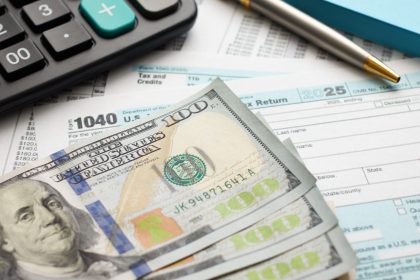Key takeaways
- Most bank account denials stem from ChexSystems reports showing past account problems like unpaid negative balances, bounced checks, or suspected fraud — not your credit score.
- You can get your ChexSystems report free once every 12 months under federal law, dispute errors, and work to resolve outstanding issues before reapplying.
- Second-chance checking accounts from banks like Chime, Varo Bank and Wells Fargo don’t check ChexSystems and typically have no monthly fees or minimum balances (though Wells Fargo charges $5/month if requirements aren’t met).
- Alternative options like prepaid cards work in a pinch, but they charge activation and monthly fees (typically $5-$10/month) and don’t help you build banking history or transition to standard accounts.
Banks reject checking account applications all the time, and it has nothing to do with your credit score. About 6-7% of U.S. households are “unbanked” (no checking or savings account), often due to past banking problems flagged in their ChexSystems report.
The good news? Being denied once doesn’t mean you’re locked out of banking forever. There are clear steps to fix the underlying issues and specific banks that offer second-chance accounts designed for people in exactly your situation.
Learn more: Compare checking accounts
Why banks reject checking account applications
Banks don’t typically explain denials in detail, but the reasons fall into three categories:
- ChexSystems red flags: Unpaid negative balances, bounced checks, suspected fraud, involuntary account closures in the past 5-7 years. To fix it, you should get your ChexSystems report, dispute errors and pay your outstanding balances.
- Application errors: Misspelled name, incorrect SSN, address mismatch. To fix it, you should double-check all information and reapply.
- Identity verification issues: Typos that flag fraud alerts, inability to verify identity. To fix it, contact the bank for specific issues and provide additional documentation.
Banks use ChexSystems (and similar services like Early Warning Services) to screen applicants. If you’ve had an account closed due to unpaid fees, bounced checks or suspected fraud, that information stays on your ChexSystems report for 5 years and can block you from opening new accounts at most mainstream banks.
You have the legal right to view your ChexSystems report free once every 12 months under the Fair Credit Reporting Act. Most people who’ve been denied have never checked their report, which means they don’t know what banks are seeing or whether there are errors to dispute.
What to do if your bank application is rejected: 3 steps
Step 1: Find out exactly why you were denied
If a bank denies your application, federal law requires them to tell you the denial was based on a consumer report (like ChexSystems), and provide the name and contact information of the reporting company. What to do immediately:
- Call the bank that denied you and ask for the specific reason. Don’t accept vague answers like “based on our internal review.” Push for specifics — was it ChexSystems? Early Warning Services? An error in your application?
- Request your ChexSystems report (free once every 12 months):
- Visit ChexSystems.com or call 800-428-9623
- Also request reports from Early Warning Services if mentioned
- Review for errors, old information, or issues you didn’t know existed
- Document everything: Keep records of dates, names and specific reasons for denial. This matters if you need to dispute information later.
Step 2: Fix the underlying problems
If you have unpaid balances or fees: Some banks won’t let you open a new account until you’ve paid off old balances. Even if your old account was closed years ago, that unpaid $150 overdraft could still be blocking you. Your options are:
- Pay the balance: Contact the original bank, settle the debt and get written confirmation that it’s resolved
- Negotiate: Some banks will settle for less than the full amount — ask for a “pay for delete” where they remove the negative report in exchange for payment
- Wait it out: ChexSystems reports expire after five years, but that’s a long time to go without a bank account
If there are errors on your report, dispute them immediately with ChexSystems. Common errors include:
- Accounts that were closed properly but marked as involuntary closures
- Fraud that was reported but later resolved
- Balances that were actually paid but still showing as outstanding
- Information from a joint account holder’s actions (you can be held responsible for joint account issues)
ChexSystems must investigate within 30 days. If they can’t verify the information, it must be removed. Here’s our guide to clearing up your ChexSystems report.
Step 3: Try a different bank (or a bank that doesn’t check ChexSystems)
Banks have different approval standards. Just because one bank denied you doesn’t mean all banks will. Some traditional banks are more forgiving of minor ChexSystems issues. Consider:
- Credit unions: Often more flexible than big banks, especially if you explain your situation
- Community banks: Smaller institutions may look at the full picture rather than auto-declining based on ChexSystems
- Online banks: Some have more lenient policies because they have lower overhead costs
Several banks explicitly state they don’t use ChexSystems for account approvals. These aren’t technically “second-chance” accounts — they’re just standard checking accounts with no ChexSystems screening.
Best option: Second-chance checking accounts
Second-chance checking accounts are specifically designed for people who’ve been denied standard checking accounts due to banking history. They function like regular checking accounts but with some limitations (no paper checks at some banks, possible monthly fees, initial deposit requirements).
Many second-chance accounts offer a path to upgrade to a standard checking account after 6-12 months of responsible account management. These include:
- Chime: When you apply for a bank account, Chime doesn’t do a credit check or look at your ChexSystems report. Nor do Chime accounts charge a monthly fee or require a minimum balance.
- Varo Bank: The bank account application process at Varo doesn’t include a ChexSystems screening, and customers have no monthly fees or minimum balance requirements.
- Wells Fargo: Clear Access Banking is a checkless account that’s described by the bank as “for customers unable to open standard accounts due to past credit or banking history.” It comes with a debit card and charges a $5 monthly service fee when requirements aren’t met.
See Bankrate’s best second-chance bank accounts.
Alternative options if you still can’t get a bank account
If you’re working to clear up your ChexSystems report or waiting out the 5-year reporting period, these alternatives can help you manage money without a traditional bank account.
Prepaid debit cards
With a prepaid debit card, you can load money onto the card upfront, then use it like a card for purchases and ATM withdrawals. No credit check, no bank account required, and you can’t overdraft.
Prepaid debit cards are a solid short-term solution while you’re fixing ChexSystems issues or waiting for account approval. They’re not a long-term replacement for a bank account, as they come with a host of fees.
Pros
- Accepted anywhere debit cards are accepted
- Can’t overdraft or get into debt
- Some offer direct deposit and bill pay features
- Available at grocery stores, pharmacies, gas stations
Cons
- Fees add up quickly (you can easily pay $10-$15/month in various fees)
- Don’t build banking history or help you qualify for a regular account later
- No FDIC insurance on some prepaid cards (check before buying)
- Don’t help build credit
Money orders
You can pay cash (plus a small fee) to purchase a money order for a specific amount. The recipient can cash it at a bank, post office or check-cashing service.
Consider using money orders when paying rent, sending money to someone without a bank account, or for one-time payments when you don’t have checks. The downside to money orders are that fees can add up if you’re buying many money orders per month. Money orders can also be lost or stolen, and they’re often an $1,000 limit per money order at most places.
Check cashing services, when used with caution
If you don’t have a checking account and need to cash a check, you could resort to check-cashing services. These services are typically offered through storefronts or retailers, and you’ll often pay a fee, either as a percentage of the check amount or a flat fee. These fees can often be considerable, so it’s a good idea to compare the amounts when deciding upon a provider.
Bottom line
Most checking account denials stem from ChexSystems reports showing past banking problems, not your credit score or employment status. The fastest path back to traditional banking is usually:
- Get your ChexSystems report (free once per year)
- Dispute any errors and pay off any outstanding balances
- Open a second-chance checking account
- Manage the account responsibly for 6-12 months
- Upgrade to a standard checking account or apply at other banks
Why we ask for feedback
Your feedback helps us improve our content and services. It takes less than a minute to
complete.
Your responses are anonymous and will only be used for improving our website.
Help us improve our content
Read the full article here
















